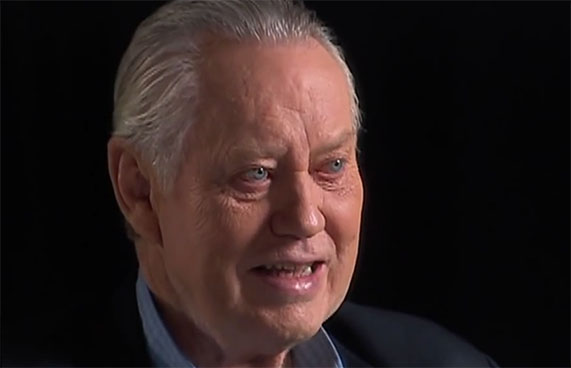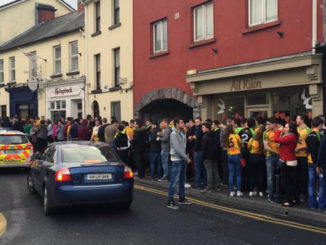
[dropcap]T[/dropcap]he rhyme says sharing is caring, but billionaire Chuck Feeney exemplifies the concept: “I cannot think of a more personally rewarding and appropriate use of wealth than to give while one is living,” Feeney says. He is the sharing billionaire.
While others speak of doing, “kindness giving birth to kindness” was the concept of Greek philosopher Sophocles, Feeney, to borrow a slogan, just did it.
Feeney says: “It is their call, what the rich do with their money, but they will get more satisfaction giving it when living, than when dead.”
His message is not idle chatter; globally, over a 30-year period, Feeney and his Atlantic Philanthropy fund have invested €1.6 billion in Ireland, including Northern Ireland, to advance higher education, human rights, and improve services and policies for young people and older adults. Globally his giveaway is over €6.5 billion.
Dr Caroline McGee is the Project Lead at the Digital Repository Ireland (DRI) for the Atlantic Philanthropies Archive , a project to enable people whose lives have been touched by philanthropy grants to contribute personal ‘objects’, and associated insights, to the digital collections.
These insights, will be hosted online and also through a series of ‘Lifelines Story Box’ events.
According to McGee, the digital archive is multipurpose: “It is in the spirit that philanthropic investment on such a grand scale has impact that is far reaching and substantial.”
Her hope is it will be a clear and accurate platform to highlight the many exemplar projects Atlantic has helped.
“This archive project has the ability to bring people together and put a face on the work and accomplishments of Atlantic grantees. People whose lives have been forever changed, or whose paths found a different course because of this funding. Those who were changed personally and those whose communities were changed, are the people we are looking to be a part of this.”
In a Forbes interview, Feeney says his funding model had to be different to what came before: “The people had to work to understand it,” says Feeney. “The advantage from our point of view was that the money was promptly available for the desired activity. Our giving is based on the opportunities, not on a plan to stay in business for a long time.”
DCU historian Eoin Kinsella is researching the work of Atlantic.
“Feeney adopted anonymity as a course of action,” Kinsella says, referring to the fact that Feeney never publicised his philanthropy until it became impossible not to.
“Without this funding, which was put in place with a Government agreement that they would match the donations, DCU might not be the success it is today.”
Kinsella is researching the impacts on recipients: “I want to bring that story. I want people to have a better recognition of the name, and how much was done. To step back and get a look at the bigger picture; until then you can’t really get a sense of how wide reaching the funding is.”
Credit where it’s due
Many organisations credit the Irish-American for their longevity.
Barnardo’s says: “Through Atlantic’s funding, Barnardo’s was able to develop its research and best practice to enhance service design and grow the delivery of our Children’s Services across Ireland, to the scale it is today.
“This has in turn resulted in increased emotional well-being and improved learning and development for the children we work with every day, as well as the positive influence Barnardo’s advocacy has had in improving life outcomes for all children in Ireland.”
Unlike other philanthropists, Feeney’s name does not appear on buildings, and the true extent of his investment may never fully appreciated.
The Children’s Rights Alliance also credit Atlantic: “They [Atlantic] gave us our first core grant & played a key role in our development. Their input was vital in growing sustainability & helping us purchase a building in Smithfield – our forever home,” a spokesperson said.
In her diaries Anne Frank wrote: “How wonderful it is that nobody need wait a single minute before starting to improve the world.” Feeney’s legacy has inspired others to follow suit, including Bill Gates and Warren Buffet, and their contributions are accomplishing improvement.
Prof. Barry O’Sullivan Founding Director of the Insight Centre for Data Analytics says: “For me, Chuck Feeney is right up there with St. Patrick in terms of his impact on the creation of what Ireland is today. He literally gave away more than a billion euro of his own money to projects, he did so anonymously. He believed in giving while living, and appreciated that he only needed a modest amount of money to lead his own life.”
McGee hopes the legacy of philanthropy and how it has funded projects for social change in Ireland, might allow others to consider philanthropy as an option and think “wow that’s something I can buy into.”
Personal reward as an ideology?
Or as Sophocles says, kindness giving birth to kindness.



